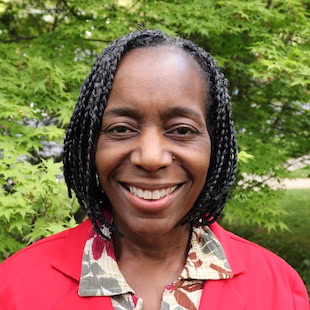2021 Journalism Awards
The American Academy of Religion, the world’s largest association of academics who research or teach topics related to religion, announces the winners of its 2021 best in-depth reporting on religion contest.
Each journalist submitted three to five articles published in the calendar year 2020. The first-place winner received $1,000; second-place, $500; and third-place, $250. The names of the contestants and all identifiers were removed from the submissions prior to judging.
The jury included Liz Kineke, broadcast and print journalist, formerly of CBS Religion; Debra L. Mason, Professor Emerita, Missouri School of Journalism; and Nathan C. Walker, president of 1791 Delegates, manager of the Foundation for Religious Literacy, and member of the AAR's Committee on the Public Understanding of Religion.
Best In-Depth Newswriting
This year’s recipients submitted up to three news articles, columns, editorials, and other reporting in any published medium of any audience or market size published in the calendar year 2021.

First Place
Jaweed Kaleem
Example of Award-Winning Work: In One of the Last Places to Likely See Coronavirus, Disaster Prep is a Way of Life
Jaweed Kaleem, a national correspondent for the Los Angeles Times, placed first. His artful narratives of five Americans revealed a poetic mosaic about the nature of religion in the age of Trump. Kaleem’s winning entry included a feature of one of Auschwitz’s last remaining survivors and a story about a rural Idaho Mormon family that spent a lifetime preparing for disasters. One juror observed that “Kaleem’s depiction of an emerging clergyman illustrated the gritty reality of lived religion in an era of zoom worship”. His investigation of a Catholic parish priest to immigrants who worked for Smithfield was an exposé of the intersection of religion, citizenship, food, Covid, and politics. The winning entry also included Kaleem’s portrayal of a Christian Reform Church pastor’s emotional struggle to leave his church and his ministry over Trump.

Second Place
Jeff Sharlet
Example of Award-Winning Work: ‘Patriotic Education’ Is How White Supremacy Survives
Jeff Sharlet, contributing editor at Vanity Fair, placed second. Sharlet took an in-depth approach to the politics of white Christian nationalism. In his analysis of biblical capitalism, Sharlet critiqued the “fusion” between “biblical capitalism of apocalyptic tendencies.” He probed the relationship between President Trump’s campaign rallies and the “gospel of numerology, tweetolgy, and white supremacy” while sounding the alarm of how the conspiracy of Qanon “is seeping into every corner of America’s mind.” In his investigation of the presidency in light of the power of local school board members, one juror noted that Sharlet “exposed a resurrected brand of “patriotic education” and, in other commentaries, confronted the rise of religious-based hate in America.”

Third Place
Adelle Banks
Example of Award-Winning Work: Stacey Abrams’ Passion for Voting Began with her Preacher Parents
Adelle Banks, production editor and national reporter for the Religion News Service, placed third. She explored the growing pains and cultural barriers that come with building multiracial churches. Banks reported on the theology and science of religious gatherings during the pandemic and the visceral desire and danger of singing together. Banks’ articles on voter mobilization within the Black Church and Stacy Abram’s religious upbringing show the complex ways race and religion influenced 2020 politics. The jury acknowledged that Banks’ story about reparation efforts in light of the 1923 massacre in the majority-Black enclave of Rosewood, Florida, “informs the national conversation about the public’s illiteracy about American history, race, and religion.”
